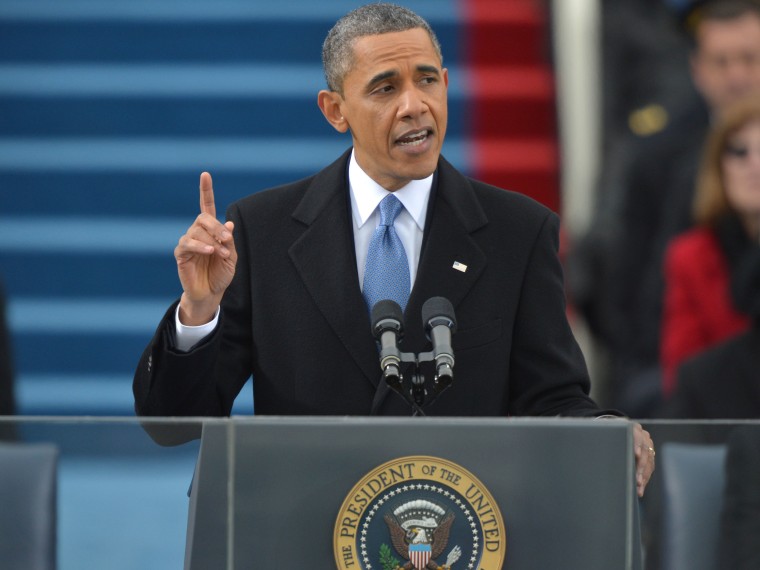They were five simple words in a 2,000-word speech--"We have to fix that." But for millions of voting rights supporters across the country, they were a sign that President Obama recognized one of the major struggles of the modern civil rights movement, as activists and some Democrats push back against an onslaught of voter suppression tactics that dampen turnout among Democratic constituencies.
Another sign of the president's support for voting reforms came on Inauguration Day, when he said, "Our journey is not complete until no citizen is forced to wait for hours to exercise the right to vote."
The third, and perhaps most vociferous call, may be only a week away, according a New York Times report that says the president will call for voting reforms in next Tuesday's State of the Union address.
The same report included an MIT analysis of voting wait times in 2012 that is likely to bolster his push for voter equality. Democrats and Independents, on average, waited about 20% longer than Republicans. Black and Hispanic voters waited nearly twice as long as white voters. Urban voters waited more than twice as long as rural voters. The poor waited longer than the rich.
To address the president's concerns, Democrats in Congress have introduced a number of proposals designed to help reduce wait times and generally increase access to the polls. Those plans include bills that modernize the voter registration system and create a mandatory minimum early voting period.
A bill sponsored by Senator Mark Warner, whose home state of Virginia saw voting wait times of three and four hours in some precincts, would authorize additional funding to help states pay for various measures that increase access to the polls and expand early voting. That proposal could presumably help alleviate concerns in fiscally conservative states, where lawmakers typically complain that expanding early voting is too costly.
So far, the congressional proposals lack the Republican votes needed to move forward, but the push from the president may help.
At the state level, Democrats are no longer the only officials calling for legislation to help end long voting lines either. Florida Secretary of State Ken Detzner, who as recently as December had defended the new Republican law that cut early voting days to eight, released a report yesterday calling for a return to that longer 14-day early voting period.
That's especially important for Florida voters, who had the longest wait times of any voters across the country, waiting on average more than three times as long, according to the MIT analysis.
Voting rights are inextricably linked to civil rights. Of the top ten states with the longest voting wait times, five are also in the top ten states with the highest population of African-American residents. (That goes up to six if you include Washington, D.C., which has the second longest wait time and highest percentage of African-American residents.)
The president appears poised to make equal voting access a key part of his second term. If he succeeds, he will have bolstered his party and his legacy.
